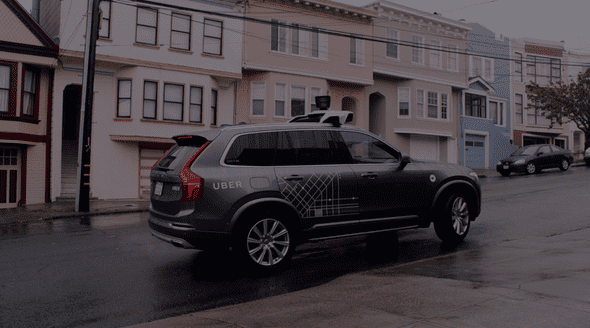Round Two, Newsletter 6
September 26, 2017
Sorry about that, at some point I realised that I really enjoyed making these newsletters. Shout out to those of you who when seeing me said that you enjoyed them. That’s nice.
For those of you who forgot what this newsletter is about, it tracks and aggregates news stories on how ‘big tech’ is going cause of the collapse of the labour market, and possibly the current Western system of capitalism. Fun times.
We’re entering a really interesting period. Everyone knows tech monopolies are eating the labour market of ‘normal’ jobs, how will the politicians, professors and legislators fight back?
If you haven’t been following, don’t worry, mainstream media is notoriously bad at covering this stuff because they won’t make any money. But just in case you didn’t think this was really important, The Economist featured a front-page story during my exams in May, professors have been writing books about it, and Hilary Clinton said this in her book:
“Every time I went out to Silicon Valley during the campaign, I came home more alarmed about this. My staff lived in fear that I’d start talking about “the rise of the robots” in some Iowa town hall. Maybe I should have. In any case, policy makers need to keep up with technology as it races ahead, instead of always playing catch-up.”
Which to me is amazing, because I started this newsletter because this topic wasn’t talked about during the Amercian election. Now we know why: Trump shifted all the blame of declining wages and jobs on immigration, while Clinton wasn’t allowed to speak about one of the real threats that will rise throughout the course of the 2016-2020 presidency.
Also, I’m seeing a rise in interest around Bitcoin, cryptocurrencies and the decentralisation of the internet, which might be a solution to our current problems. So I’ll be adding in the juiciest of stories explaining them in plain English.
Onto the stories…
The world’s most valuable resource is no longer oil, but data
The Economist delivers a front-page spread on how by using a tech giant’s products for free, your data is being collected, and monetised.
Basic Income Research Proposal
1,000 will receive $1,000 per month for up to 5 years, and 2,000 will receive $50 per month and serve as a control group for comparison.
A first look at how Basic Income works is going ahead.
Facebook’s war on free will
Facebook has a team, poached from academia, to conduct experiments on users. It’s a statistician’s sexiest dream – some of the largest data sets in human history, the ability to run trials on mathematically meaningful cohorts. When Cameron Marlow, the former head of Facebook’s data science team, described the opportunity, he began twitching with ecstatic joy. “For the first time,” Marlow said, “we have a microscope that not only lets us examine social behaviour at a very fine level that we’ve never been able to see before, but allows us to run experiments that millions of users are exposed to.
The iPhone X’s notch is basically a Kinect
But the basic idea of the Kinect is unchanged. And now it’s in a tiny notch on the front of a $999 iPhone.
Uber London loses licence to operate
Commentary I liked from Monzo’s CEO Tom Blomfield:
I don’t think the Mayor of London or TfL really expect to shut down Uber. It would be a deeply unpopular move. There’s an acceptance that Uber has improved things for riders, albeit at the expense of the Black Cab industry, and London wants to welcome innovative technology firms.
However, I also suspect that Uber hasn’t been as co-operative as TfL would like on several issues mentioned, and so this feels like a warning shot to get them to be better corporate citizen. Quote from an MP; “No company, however big and powerful, will be allowed to flout our laws and regulations.”
Uber could have reacted by saying “we acknowledge our shortfallings, and we’ll work closely with TfL and the Mayor of London to ensure we put passenger safety first. We hope to avoid any interruption in service and continue to play a valuable part in London’s diverse and effective public transportation system.”
Instead, they took a typically Travis-ish stance and said “Screw you, people love us because we’re cheaper, we’ll fight this and we’ll win,” without any acknowledgment of their failings. Perhaps new leadership can change this approach.
I think overall this is a good move, ultimately consumer’s dictate which companies win, and therefore the hiring practices of companies that survive are the job opportunities for everyone else. Uber has created a low cost taxi service in part by technology and algorithms, but also by subsidising the cost of rides by the large amounts of investment that they receive and hiring drivers on a 0 hour contract. That’s fine if some of the labour market acts like this, it provides quick opportunities for part-time work.
But when the only companies that survive end up doing this, and they will, that’s a problem for the worker who wants a reliable form of full-time income.
Thanks for reading! If you have any comments, questions or feedback please get in contact. Have a nice Sunday.
I'm Henry Moulton, a software design and development freelancer living in London, UK.
My portfolio will be online soon.

